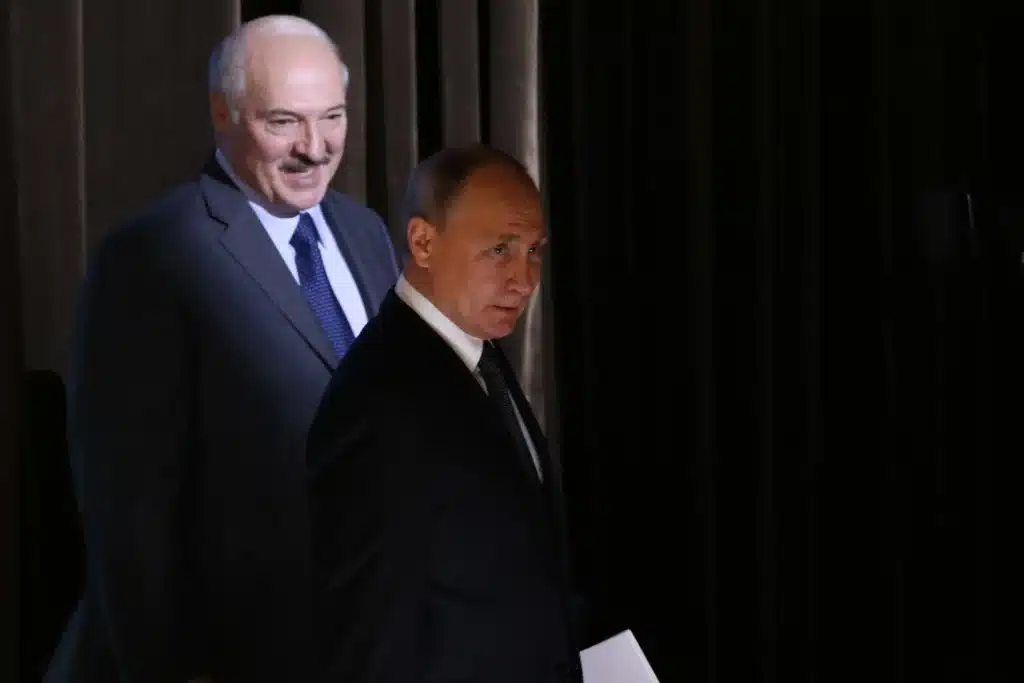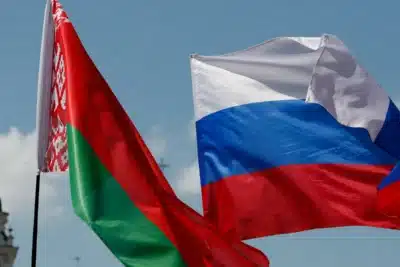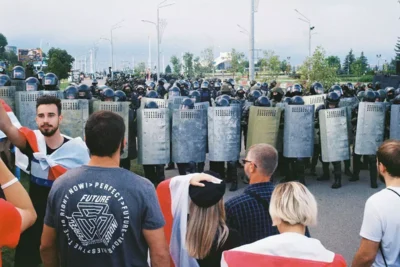
Belarus-Russia Alliance 2025: Is Minsk Losing Its Sovereignty?

The Belarus-Russia alliance 2025 has reached a new level of integration unprecedented since the collapse of the Soviet Union. As Belarus faces ongoing Western sanctions, political isolation, and economic decline, President Alexander Lukashenko increasingly relies on Moscow for survival.
While officially framed as a "strategic partnership," experts argue that this deepening alliance erodes Belarusian sovereignty, effectively transforming the country into a Russian satellite state.
But how did Belarus reach this point, and what does it mean for the country’s future?
🏛️ Political Integration and Sovereignty Concerns
The Union State of Russia and Belarus, established in 1999, was originally symbolic. Today, it’s becoming a functional framework:
- Unified governance measures: Minsk and Moscow have agreed on roadmaps integrating tax codes, banking regulations, and trade policies.
- Legal alignment: Belarus has introduced laws mirroring Russia’s infamous "foreign agents" and "extremism" acts, tightening control over civil society.
- Foreign policy subordination: In global forums such as the UN, Belarus increasingly votes in line with Moscow, including resolutions linked to Ukraine.
Analysts warn this trajectory risks eliminating Belarus’s capacity to act independently. Political scientist Pavel Usov states:
"Lukashenko has traded autonomy for regime survival. Belarus is now politically fused with Russia in all but name."
💰 Economic Dependence on Moscow
Sanctions imposed after 2020’s brutal crackdown and Minsk’s support for Russia’s war in Ukraine have reshaped Belarus’s economy:
- Trade realignment: Over 60% of Belarus’s exports now go to Russia, compared to 38% in 2020. This includes key industries like potash, machinery, and agricultural products.
- Loans and subsidies: Moscow provides billions in emergency loans and discounted energy supplies, effectively propping up Belarus’s economy.
- Russian acquisitions: Russian investors have acquired controlling stakes in Belarusian logistics hubs, refineries, and even IT firms.
This economic pivot reduces Belarus’s leverage. Former diplomat Valeriy Kovalevski warns:
"Minsk is caught in a trap: it can’t exit Russia’s orbit without risking collapse."
🪖 Military Cooperation and Security Risks
Military integration has accelerated dramatically:
- Permanent Russian troop presence: Since 2022, Russian forces have maintained bases near Grodno and Brest, close to NATO borders.
- Joint command drills: Large-scale exercises like Zapad-2025 test shared command structures, blurring distinctions between Belarusian and Russian forces.
- Nuclear deployment: Reports confirm Russia has stationed tactical nuclear weapons in Belarus, raising alarms in Warsaw and Vilnius.
This militarization has strategic costs. By hosting Russian forces, Belarus risks being a frontline state in future conflicts, tethered to Moscow’s military ambitions.
📊 Public Opinion and Resistance
Public opinion reflects growing polarization:
- Older generations: Many see Russia as a cultural and economic ally, viewing integration as stability.
- Younger Belarusians: Urban populations and the diaspora favor independence, associating closer ties with authoritarian entrenchment.
- Muted dissent: Lukashenko’s repression—mass arrests, surveillance, and media censorship—forces opposition underground. Exiled groups use encrypted channels to resist what they call “creeping annexation.”
Grassroots initiatives abroad, particularly in Poland and Lithuania, warn against Belarus becoming “Russia’s western province.”
🌍 Western Reactions
The West has responded with sharp criticism and new sanctions:
- EU policy: Brussels labels Belarus a "co-aggressor" in Ukraine, expanding trade restrictions and freezing state assets tied to Moscow’s defense network.
- NATO posture: Military planners view Belarus as a potential Russian forward base. New NATO deployments in Poland and the Baltics are partly driven by Belarus’s integration with Russia’s armed forces.
- US warnings: Washington’s State Department states Minsk has “voluntarily surrendered its sovereignty in exchange for Kremlin protection.”
Despite this, Lukashenko dismisses Western pressure as "irrelevant," framing closer ties with Moscow as necessary to counter "external enemies."
🧭 Cultural Integration and Identity Pressures
Beyond politics and economics, Russian cultural influence has intensified:
- Russian media dominates television and digital platforms within Belarus.
- Educational reforms emphasize shared history narratives favoring Moscow’s worldview.
- Use of the Belarusian language continues to decline in favor of Russian in schools and public life.
Opponents call this a "soft annexation," eroding Belarusian national identity from within.
🔮 Is Belarus Losing Its Sovereignty?
By 2025, Belarus remains nominally independent, but experts agree its policy space is severely constrained:
- Foreign policy is dictated by Moscow.
- The economy functions under Russian credit and oversight.
- Military infrastructure increasingly serves Russian strategic aims.
Unless sanctions ease or Lukashenko finds alternative partnerships—unlikely under current repression—Belarus will continue drifting toward becoming Russia’s closest satellite.
❓ FAQs: Belarus-Russia Alliance 2025
Q1: What is the state of the Belarus-Russia alliance 2025?
It is deeper than ever, spanning politics, the economy, military, and culture.
Q2: Is Belarus losing its sovereignty?
While not formally annexed, its dependence on Moscow leaves minimal room for independent decision-making.
Q3: Why is Belarus so dependent on Russia?
Western sanctions, isolation, and Lukashenko’s regime survival strategy have cemented Moscow as its sole backer.
Q4: What are the military implications of this alliance?
Belarus hosts Russian troops and tactical nuclear weapons, heightening NATO tensions.
Q5: How does public opinion view the alliance?
Older Belarusians often support it, while younger citizens and the diaspora oppose what they see as a threat to national identity.





